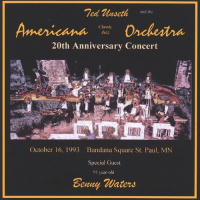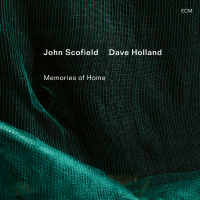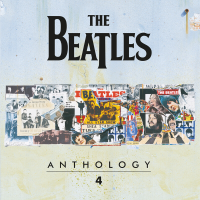Home » Jazz Articles » Album Review » Uri Caine Ensemble: Gustav Mahler in Toblach
Uri Caine Ensemble: Gustav Mahler in Toblach
The difference lies mainly in expanded and/or reworked arrangements and an increased amount of solo room given to the players. "I often think they merely have gone out!" is the most remarkable example. On the studio record the piece was only three minutes long and featured whispery vocals, which gave it a tongue-in-cheek lounge feel. Here it stretches across ten minutes, the lounge vocals replaced by an unambiguous jazz vibe. Burning solos by altoist David Binney and trumpeter Alessi, along with Jim Black's hot-and-heavy drum support, make this one of the album's strongest tracks. Also a high point is the fast, joyful swing of "I went out this morning over the countryside." This is Caine's most inspired and imaginative reading of Mahler—the spirit of the original work speaks through the Caine ensemble with unmatched clarity. Caine himself plays a brilliant solo sprinkled with moments of stride piano. Gustav Mahler, meet Fats Waller.
These tracks are bright and uplifting. A lot of the material is much darker, however. The funeral march from Mahler's fifth symphony opens the album and introduces a pronounced klezmer theme. Caine intends to draw attention to hidden Jewish strains in Mahler's work, and the old-world rhythms and minor modes of klezmer are his vehicle of choice. The effect is majestic and almost spooky on the final cut, "The Farewell," which features Hebrew cantorial singing by Aaron Bensoussan. In the third movement of Mahler's first symphony, however, the klezmer passages sound a little hokey and clownish. Caine's radical reading of "The Drummer Boy" works better. Dave Binney's solo conjures images of Gary Bartz with semi-electric Miles. Try getting a handle on how Caine derived that from the original Mahler.
Classical purists haven't been too thrilled with Caine's efforts, but they aren't really his audience. Whether you'd rather listen to Uri Caine's Mahler or to Mahler himself is a subjective question. But one shouldn't deny Caine credit for teaching us something new about music's elasticity.
Track Listing
CD1: Symphony no. 5, funeral march; I often think they merely have gone out, from Songs of the Death of Children; Now will the sun rise as brightly, from Songs of the Death of Children; The drummer boy, from The Boy's Magic Horn; Introduction to Symphony no. 5, adagietto; Symphony no. 5, adagietto. CD2: Symphony no. 1, 3rd movement; I went out this morning over the countryside, from Songs of a Wayfarer, Symphony no. 2, andante moderato ; Symphony no. 2, primal light; Interlude to The Farewell, from The Song of the Earth; The Farewell, from The Song of the Earth.
Personnel
Uri Caine
pianoRalph Alessi: trumpet; Aaron Bensoussan: vocals, oud; Dave Binney: alto saxophone; Jim Black: drums; Uri Caine: piano, keyboards; Mark Feldman: violin; Michael Formanek: acoustic bass; DJ Olive: turntables, live electronics.
Album information
Title: Gustav Mahler in Toblach | Year Released: 2000 | Record Label: Winter & Winter
Tags
PREVIOUS / NEXT
Support All About Jazz
 All About Jazz has been a pillar of jazz since 1995, championing it as an art form and, more importantly, supporting the musicians who make it. Our enduring commitment has made "AAJ" one of the most culturally important websites of its kind, read by hundreds of thousands of fans, musicians and industry figures every month.
All About Jazz has been a pillar of jazz since 1995, championing it as an art form and, more importantly, supporting the musicians who make it. Our enduring commitment has made "AAJ" one of the most culturally important websites of its kind, read by hundreds of thousands of fans, musicians and industry figures every month.



























